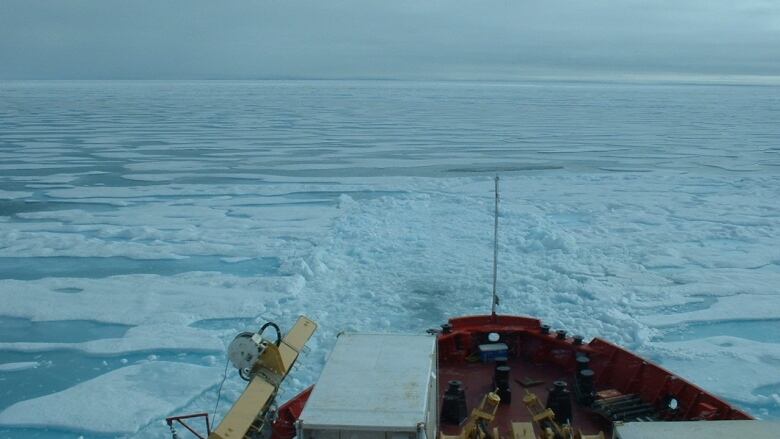New Polar Code for Arctic ships to come into effect in January
The code is a mandatory set of regulations laying out detailed requirements for ships navigating polar waters

A new International Code for Ships Operatingin Polar Waters, better known as the Polar Code,will officially come into effect on January 1st.
The Code an international regime thatwas agreed upon in 2014 by the International Maritime Organization (IMO), an agency of the United Nations lays out detailed requirements relating to ship design, operations, prevention of environmental pollution, crew training and safety for vessels travelling through the Arctic and Antarctic.
A step in the right direction, says WWF
"It imposes a regular regime on ship operators and captains who don't frequent the Arctic very much," saidAndrewDumbrille, the senior specialist for sustainable shipping atWWF-Canada.
Drumbrille says the code is a step in the right direction.
"[Ships] will be mandated to have a polar operating manual, and in turn, receive a polar certificate."

Dumbrille says he's happy to see thatthe polar operating manual will requireships to have lifeboats that can survive Arctic weather for three to five days, as well as navigate through ice and oily waste.
"There's also a really interesting positive part to the Polar Code that say mariners will avoid conflicts with marine mammals whenever possible, and create a voyage plan that does that."
Room for improvement?
The environmental group wants to seestricter regulations on grey water discharged, aphase-out of heavy fuel oil, and increased consultation with Arctic communities. It is urgingTransport Canada to fill in those gaps.
Transport Canada is currently reviewing its rules for safety and pollutionbefore the Polar Code comes into force.
"Transport Canada has a duty to protect livelihoods and ocean use for communities in the Arctic and really has to pay attention about what is being dumped by ships as they transit or do resupply," said Dumbrille.
Dumbrille says heavy fuel oil should be banned in the Arctic Ocean, like it is in Antarctic waters, "especially because of the potential impacts from a spill on community food security if it gets into the marine ecosystem."
Suzanne Paquin, president and CEOof Northern shipping company NEAS, saysimplementing strict regulations is important step for marine navigation.
"These are the most extreme conditions on the planet where infrastructure is limited to non-existent, and search and rescue is difficult," she said.












_(720p).jpg)


 OFFICIAL HD MUSIC VIDEO.jpg)
.jpg)



























































































